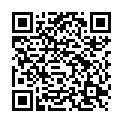|
|
|
| Module code: MAS-20-III2 |
|
|
2S (2 hours per week) |
|
5 |
| Semester: 2 |
| Mandatory course: yes |
Language of instruction:
German |
Assessment:
Module work
[updated 14.06.2021]
|
MAS-20-III2 (P322-0190, P322-0576) Social Work, Master, ASPO 01.10.2020
, semester 2, mandatory course
MAS-20-III2 (P322-0190, P322-0576) Social Work, Master, SO 01.10.2023
, semester 2, mandatory course
|
30 class hours (= 22.5 clock hours) over a 15-week period.
The total student study time is 150 hours (equivalent to 5 ECTS credits).
There are therefore 127.5 hours available for class preparation and follow-up work and exam preparation.
|
Recommended prerequisites (modules):
MAS-20-I1 Transitions in the Course of Life: Lives, Biographies, and Coping with Life in the Face of Social Change
MAS-20-I2 Life Situations, Social Inequalities and Social Cohesion: Social and Educational Regulation
MAS-20-I3 Migration, Diversity and Interculturality: Socio-Educational and Structural Concepts in Migration Society
MAS-20-II2 Advanced Qualitative Research, Evaluation Methods with Research Workshop
[updated 30.10.2023]
|
Recommended as prerequisite for:
MAS-20-V1 Master’s Thesis
MAS-20-V3 Colloquium
[updated 22.05.2025]
|
Module coordinator:
Prof. Dr. Ulrike Zöller |
Lecturer: Prof. Dr. Ulrike Zöller
[updated 30.10.2023]
|
Learning outcomes:
After successfully completing this module, students will be able to:
- identify cases by their respective characteristics,
- theoretically reconsider and weigh cases in detail,
- use qualitative-reconstructive methods for this purpose, and
- apply them to the respective case,
- transfer their findings to the daily work of a social worker, as well as
- moderate case analyses in a group.
[updated 14.06.2021]
|
Module content:
- Introduction and in-depth study of the basic analysis and action structure of case analysis,
- Introduction and practice of selected qualitative-reconstructive case analysis procedures,
- Introduction to empirical-analytical case identification and theory-driven explanatory work.
[updated 14.06.2021]
|
Teaching methods/Media:
This seminar is designed to be suitable for both face-to-face and digital formats. In addition to seminar-based forms of conveying and appropriating the content of this module, such as the reception and reflection of relevant literature during preparation for and follow-up (self-study) of the module, presentations and student group work, empirical-analytical work on actual cases, introduced by the students themselves, will, among other things, contribute to the teaching-learning process. Individual teaching units with a workshop character will also take place. These will help students acquire and test selected research methods. These teaching units can also take place as a block for didactic purposes.
[updated 14.06.2021]
|
Recommended or required reading:
The relevent literature will be updated regularly and communicated via the seminar schedule and presentations.
[updated 14.06.2021]
|


